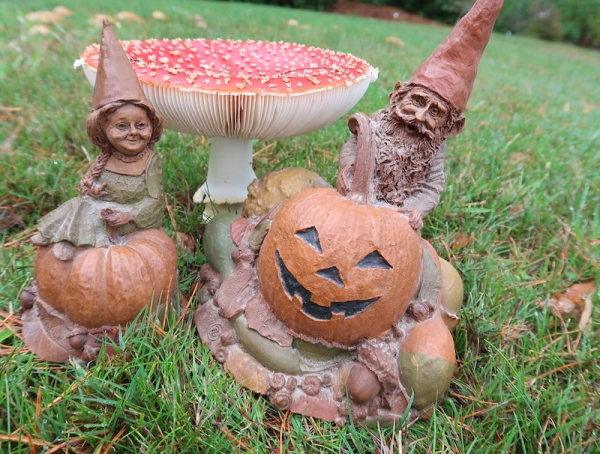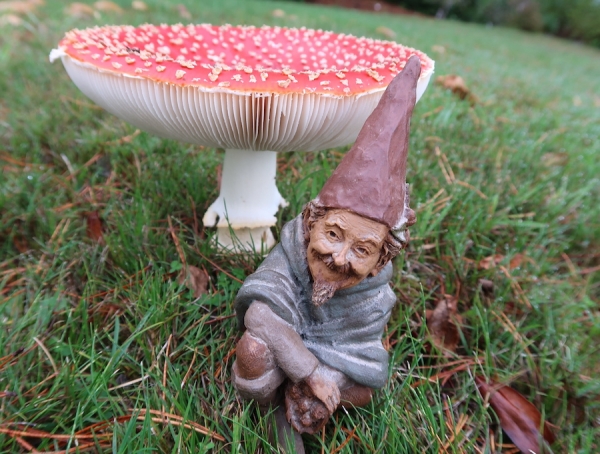Greetings!
I hope everyone is doing well as we slide into the last couple of months of 2023! My morning walks have turned much colder the past couple of weeks, but the sun still makes an appearance most days. (I shouldn't even think that out loud!) The good news is that I was released from Physical Therapy last week, but will still need to do exercises to strengthen my hip and get rid of the Charlie Chaplin walk! So, all in all, things are good here!
The first music for the piano was published in 1732.
After a two-week trip, JS Bach billed his church for beer! The amount he demanded was enough to purchase eight gallons!
By 1300, many major cities in Europe had one hundred thousand or more inhabitants. The city councils in these locales became significant employers of musicians, relying on them for practical services as well as pomp and ceremony. It seems that there might have even been some competition between bishops and city leaders in their attempts to gain prestige from their musical entourages.
New Reviews: There are lots of new reviews for you this month, and they are all over the map musically. Quite a few of the recordings that were reviewed are by artists who are very familiar to MainlyPiano.com, but some are brand new and well-worth the time to check out. You can find them all
here.
The oldest surviving opera, "Euridice" by Jacopo Peri, had its premiere in Florence, Italy on October 6, 1600.
In 1711, in what was likely the first press interview with a musical instrument-maker, Bartolomeo Cristofori gave such a detailed description of his invention (the piano) that instrument makers all over Europe could duplicate his work and build their own pianos. The article was translated into German in 1725 and likely inspired pianos to be built in Germany as well.
No other instrument has figured more prominently in the long history of musical sounds as repositories of political authority and social control than the humble bell.
New Interviews: In October, I did my first interviews with two artists I've been a big fan of for a long time. The first was with
Gary Schmidt, a pianist/composer who is living in Colorado. The second was
Brad Jacobsen, a pianist/composer from Washington State. Both recently released excellent new albums, so we had lots to talk about! Check 'em out!
Early pianos were made in small workshops where a single craftsman and a few assistants produced instruments on a very small scale. Bartolomeo Cristofori was employed by a rich, music-loving prince, so he had the advantage of being able to build one piano after the next, adjusting his designs as he gained more experience. He was also able to train assistants, some of whom started their own workshops.
The first piano concert in New York was in 1773.
During the medieval period, news and music were closely intertwined. The town crier or herald came equipped with a drum, hunting horn, gong or bell. Villagers must have been especially pleased when the stranger in town was a skilled performer who could combine information and news from other villages with entertainment.
Holiday Wishes: I know it's a little early, but I just wanted to let everyone know that I'll be compiling a list of everyone's Two Biggest Holiday Wishes for the December
Pianotes. This will be the 38th Wishes List I've compiled. For those who are new, I ask for "wishes" because that opens it up to anything, and I call them Holiday Wishes so everyone can feel comfortable no matter how they celebrate (or don't) the December holidays. Around mid-November, I'll send an email to everyone who responded last year as well as all of my
Pianotes subscribers asking for your wishes. I will also post on Facebook. You are welcome to send me your wishes whenever you think of them and I'll keep a running list. This is always a fun and inspiring list and I look forward to doing it again this year! Here is
last year's list.
None of Cristofori’s pianos had pedals, although he developed an una corde system (soft pedal) in 1721.
Bells were a very big part of European daily life for a thousand years. The desire to have bigger bells than neighboring communities prompted tremendous investments of time and energy in metal-casting technology at a time when innovation was rarely a high priority.
In the 1660’s, a celebrated operatic “prima donna” (first lady) had the power to decide whether songs were added, cut, transposed, or edited, and in some cases, they even dictated the creation of an entirely new role.
Issue 500: I just realized that about this time next year, I'll be putting together the 500th issue of Pianotes! How is that even possible??? It seems like I just apologized for not doing anything special for Issue #450, but that was three years ago! Time continues to fly by, but I'll do something major for issue #500. I'm glad I have a year to think about it!
The upright piano was invented in Philadelphia in 1800 by John Isaac Hawkins at almost exactly the same time it was invented by Mathias Muller in Germany. Hawkins was said to have also invented the ever-pointed pencil.
In the second half of the 16th century, Jean-Baptiste Lully became something of a cultural czar and controlled all of the opera performances in France. He died a very rich man.
The most prolific, versatile, and ingenious piano-inventor that ever lived was Jean-Henri Pape. He took out as many as 137 patents. His most useful ideas were the use of felt for covering piano hammers and the device of cross-stringing the piano strings. He designed the "console" piano, a round piano, an elliptical piano, and a hexagonal piano. He also developed a piano that used springs instead of strings.
November Music Birthdays:
1: Joseph Akins (or is it October 31st?), Renee Michele, Brenda Warren, Dyan Garris, Deborah Offenhauser
2: Gina Lineé
3: Darla Bower & Cobb Bussinger
4: Rachel Currea, Tri Nguyen
6: Dimitri Kovachev
8: Tiana Andreas
14: Yanni
15: David Nevue
17: Jeff Bjorck & Ovidio De Ferrari
20: Robin Spielberg & Mary Lydia Ryan
21: Paul Avgerinos & Al Jewer
22: Cory Levine
23: Omar Akram
25: David Glass
26: Gary Girouard & Robin Goldsby
27: Vicente Avella & Thad Fiscella
28: Ryan Stewart
A very Happy Birthday to all of you!
Even in the 20th century, wandering blues musicians in the US were accused of making deals with the devil.
For a while, the system of white (ivory) keys for naturals and black (ebony) keys for sharps and flats was reversed. At the time, ebony was much cheaper and easier to find, so the naturals were black, and the sharps and flats were white.
Critics initially applied the term “baroque” as an insult, deriding the fussy intricacy and extravagant individualism of the aesthetic vision and contrasting it with the holistic elegance of the renaissance. The label was later legitimized and became a term of praise.
This time of year, we always have some really interesting mushrooms sprout up in the front lawn. In October, we had the biggest orange mushroom I've had. They always make me think of elves and fairies, so I took a couple of the gnomes in my collection of Tom Clark figures and took photos of them with the giant mushroom. Enjoy!
Happy Thanksgiving to those who celebrate it, and we'll be back next month with the big holiday issue. Have a great month!
Kathy
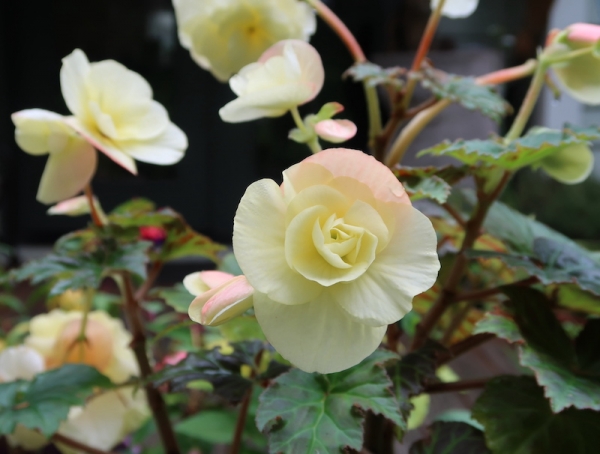
Begonia

Hydrangea and spider web!
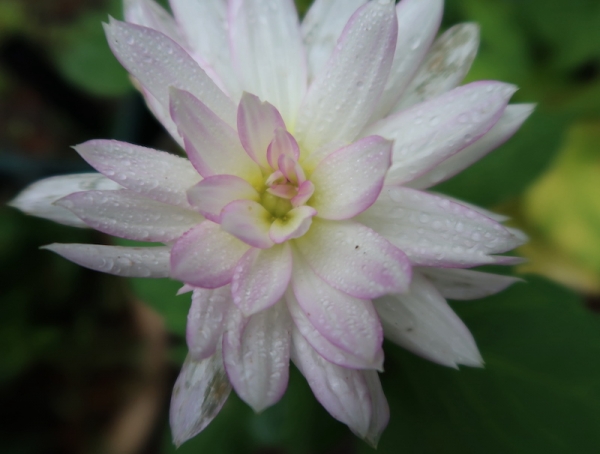
Dahlia
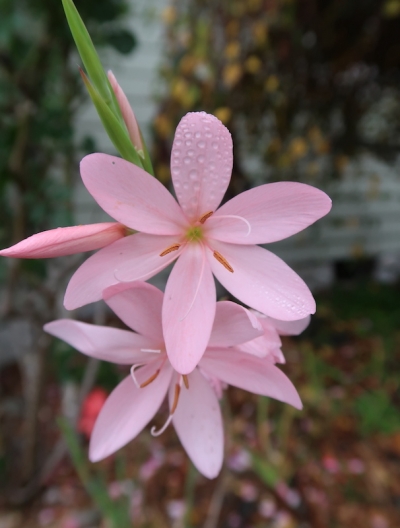
Wild Gladiolas
To the best of my knowledge, the "trivia" items are true, but I can't guarantee it.




